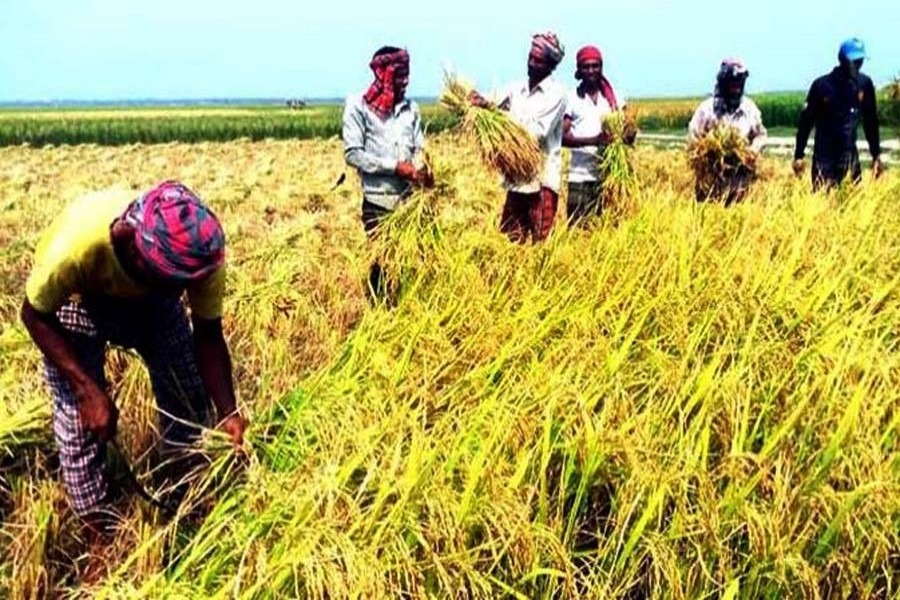
Published :
Updated :

To build its food grain stock, the government has started from May 7 its nearly four-month long paddy, rice and wheat procurement drive. The Ministry of Food is learnt to have offered to buy paddy at Tk 30 and partly boiled rice at Tk 44 a kilogramme (kg), while for wheat the price has been set at Tk 35 a kg. The government-fixed rates for these basic food grains this year will be higher by Tk3.0 for paddy and Tk4.0 for rice than those were during last Boro season when the campaign practically failed, especially for paddy and wheat, as the market prices for those items were higher.
The experience of the last Aman season's procurement drive cannot also be said to have been savoury given that out of the target of buying 0.3million tonnes of paddy, the directorate general of food could meet a small fraction of its target, though rice purchase could meet 86 per cent of the target (0.43m out of the targeted 0.5m tonnes). However, the government believes this Boro season's target of purchasing 1.25m tonnes of partly boiled rice and 0.4m tonnes of paddy will be successful as the prices it offered, especially for paddy and rice, are reportedly higher than those prevailing in the market. Even so, seeing that the government last year could not fulfil its target of paddy purchase, it has lowered its procurement target this year by 0.2m tonnes. In a similar vein, the procurement of 0.1m tonnes of wheat as planned this year may again prove to be harder as its present market price is higher than what the government has set for its purchase.
Going by what the food minister reportedly instructed, the farmers should be getting a fair deal from the field-level food officials while buying paddy from them. Hopefully, the minister's directive will work. For the farmers often get a raw deal from food officials not only in terms of the prices for their products, but also of the attitude with which they are often received. The problem starts when the paddy the farmers bring for sale are subjected to moisture testing. As the government has directed its officials to be uncompromising about the quality of the paddy to be purchased, especially regarding its moisture-content, it would be a real test for those officials given their colonial mindset towards farmers.
No wonder, farmers are generally reluctant to sell their products, paddy, to be specific, to the food officials to avoid the hassles like the requirement of their (farmers) having a bank account, the issue of reducing moisture content of their produce to the permissible level, let alone the official purchasing rate for paddy. Add to it the fact that food officials often buy the paddy from fariyas (middlemen) instead of directly from farmers.
Coming to the issue of rice procurement, which is generally made from millers, the government appears to have adopted a tough stance on it. As they could not supply their full contracted amount last year (they could meet only 50 per cent of the target), millers have been seriously warned against any such failure this time. Assuming that the retail price of rice will remain stable in the upcoming months, the prospect of the ongoing Boro collection drive looks optimistic. In this context, the government would hopefully raise its target of paddy procurement, as it promised, to help farmers.


 For all latest news, follow The Financial Express Google News channel.
For all latest news, follow The Financial Express Google News channel.